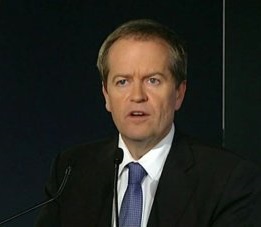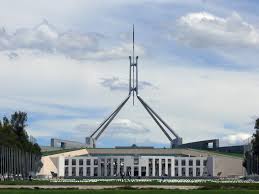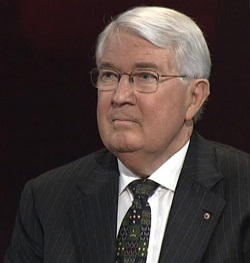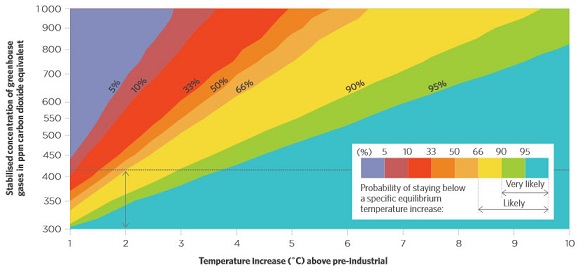
1. CO2 concentrations passing 400 ppm
Each year the atmospheric concentrations measured at Mauna Loa Observatory in Hawaii surge as spring turns into summer. We are now at the point where earlier each year they surge past 400 ppm, this year as early as March. By 2016 they will probably remain permanently above 400 ppm.
Dr Pep Canadell says crossing the 400 parts per million threshold will make it more difficult and expensive to limit climate change to two degrees.
The second part of this century we need to reduce emissions to zero and on top of it, to be removing carbon dioxide from the atmosphere so that by the end of 2100, we can stay stable under two degrees.
Canadell is head of the Global Carbon Project at the CSIRO.
2. Bio-energy with Carbon Capture & Storage
Speaking of sucking CO2 out of the atmosphere, bio-CCS is the new buzz word (I’ve also seen BECCS). The Climate Institute has released a report by Jacobs SKM Moving Below Zero: Understanding Bio-energy with Carbon Capture & Storage . Their modelling finds that
bio-energy with carbon capture and storage, or bio-CCS using food wastes, sustainable forest biomass, or crop residues, has the potential to contribute significantly to climate change efforts in Australia.
This process could remove and displace about 63 million tonnes of CO2 equivalent (MtCO2-e) annually by 2050, around 1.5 times current emissions from all cars in Australia. As well it would generate 12% of the country’s electricity.
Globally the process could remove up to 10 billion tonnes of pollution per year by 2050, according to the International Energy Agency.
The report may be downloaded from this page (scroll down). Go here for an interview with Malte Meinshausen.
3. Are coal miners responsible for greenhouse gas emissions?
No, said the Queensland Land Court in its judgement on the giant Alpha coal mine project which would dig up about 30 million tonnes of coal a year from the state’s Galilee Basin.
That’s the central fact in Graham Readfearn’s interesting story about what’s un-Australian.
Burning Alpha coal would generate 1.8 billion tonnes of CO2 over 30 years. That’s more than three times Australia’s annual emissions.
4. Abbott calls climate concerns “clutter”
In the lead up to the G20 meeting in Sydney in February, Abbott said
he didn’t want to “clutter up the G20 agenda with every worthy and important cause, because if we do, we will squander the opportunity to make a difference in the vital area of economic growth.”
The post, correctly, I think, sees Abbott as rolling back environmental and climate initiatives as hostile to economic growth, relying for economic impetus on the fossil fuel industry.
Heather Zichal, until recently President Obama’s lead climate and energy adviser, thinks otherwise:
Zichal suggests that focusing on economic productivity could be the sweet spot that Australia could use to balance climate concerns and economic growth goals. Reducing pollution and emissions from power plants and imposing strong energy efficiency measures on transport and infrastructure can boost energy productivity, save money, create jobs, and reduce emissions. “Ultimately, across all economic sectors, energy productivity is the most reliable, cleanest, and cheapest resource,” Zichal said.
Countries have to front up with their revised mitigation plans by April next year ahead of the Paris UNFCCC conference in December, hence leaving climate off the G20 agenda is simply not an option. Abbott has been told, by Christine Lagarde, managing director of the International Monetary Fund, and other powerful players.
One wonders what we will front up with next April. I predict nothing that would make a difference. We’ll see what others are doing and then do as little as possible.
5. Direst Action is a figleaf
Clive Palmer has spotted the figleaf and plans to pluck it away, says Ben Eltham. The Direct Action funding may be part of the budget, which Labor will not vote down. The Government needs no further legislation to enable expenditure, but Abbott can’t get rid of the dreaded carbon ‘tax’ without legislation. When he comes to negotiate that with PUP Direct Action will be on the table.
Eltham is right on the demographics:
While this [having no climate policy in place] may not unduly trouble the climate sceptics on the Coalition backbench, it also removes the chief utility of Direct Action, which is political, rather than environmental. Direct Action has always been used by the Coalition as a handy tool to deflect unwelcome scrutiny of its profoundly anti-environment attitudes. Without it, the Government will find it increasingly difficult to defend itself against charges of destroying the planet.
In the last Nielsen poll the 55+ group was the only one where Abbott had a clear lead, with LNP/Labor/Green at 49/33/10. This should be causing concern for the future of the conservative parties. For the young it was 32/36/26.
6. Direct Action is not scalable
Lenore Taylor points out that while Direct Action may or may not achieve 5% reductions in emissions by 2020, (most experts say, no) the policy is not scalable when the world gets a bit more serious about climate change mitigation.
according to the available modelling, even if Australia spent $88bn from 2014 to 2050 on Direct Action-type policies, emissions would still rise by around 45%. Most economists conclude that big emissions reductions under Direct Action are just not possible.
7. Green groups to use legal strategies
Given the above and the LNP’s farcical attitude to the Renewal Energy Target Review, green groups see lobbying as a waste of time and are increasingly planning legal challenges.
The Australian Conservation Foundation will be targeting voters in marginal electorates to encourage MPs to take climate change seriously. The aim is to change the current race to the bottom to a race to the top.
Reminder: Use this thread as an open thread on climate change.








